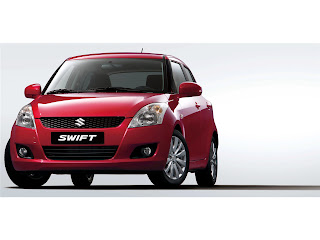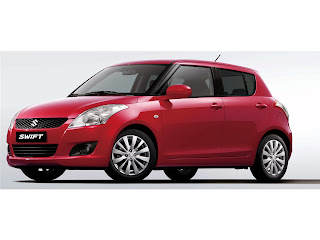Thursday, August 4, 2011
Lancia Delta HF Integrale (1979-1994) pics

Six world titles in rallying producers gained in a row. It's just part of the achievements of one of the most popular car in automotive history - Lancia Delta HF Integrale.In 1979 he released the Lancia Delta, a successful compact, which were mounted engines with capacities of 1.3 and 1.5 liters, from the Fiat Ritmo. Just one year later won the prestigious title of auto poll of European Car of the Year and motivated Lancia. In 1983 he introduced a model Delta HF Turbo, which was powered by turbocharged engine gaźnikowym DOHC 1.6-liter. 130 horsepower made the compact camera with a light sports car.In 1986 ended the era of cars racing in Group B, a 600-horse monster a little slower than contemporary F1 cars. A year later, the maximum power cars slashed to 300 horsepower, and the battle joined in the Audi 200 Quattro, Sierra RS Cosworth and Nissan 200 SX.
Unrivalled proved to be the Lancia Delta HF 4WD, which in the years 1987-1992 has won six league titles in the constructors' championship in a row. The experience gained during the rally the Italian manufacturer decided to move to a public road. That is born Lancia Delta HF Integrale, a car with one of the greatest ever in the history of motoring.
Delta HF Integrale was presented in November 1987. Turbocharged, eight valve engine with 2.0-liter intercooler and electronic fuel injection producing 185 horsepower output. It was enough to car accelerated to the first hundred in 6.6 seconds and tended to a top speed of 218 kmh. As for those times such a performance in a compact, Lancia were incredible.
Two years later, in May 1989, Lancia has made liter power unit to another 8-valve, creating a 16-valve engine with 200 horsepower. 0-100 km / h in 5.7 seconds and a top speed of 220 km / h. Auto also got hydraulic clutch, wider wheels, more advanced ABS system. Changed the distribution of power in proportion to the front 47%, 53% back on the 44:56.
After 2 years, in October 1991, Lancia introduced the next version of the Delta Integrale, which this time she wore the additional designation Evoluzione. This model is distinguished from the older version of the wider wheel arches, new front suspension, stronger brakes and the extra power under the hood (210 hp) version, without a catalyst.
Evoluzione model was not a great step forward in terms of performance car, but made up for lack of grip, handling and braking. Later versions turned up Martini Martini Five and Six, which were released on the market to celebrate Lancia consecutive league titles. At the end of production of the Delta Integrale was already 215 hp and 298 Nm of torque.
mclaren sports cars images
 mclaren sports cars
mclaren sports cars mclaren sports cars
mclaren sports cars mclaren sports cars
mclaren sports cars mclaren sports cars
mclaren sports cars
mclaren sports cars
lamborghini diablo wallpapers
lamborghini diablo
On the outside, the SE30 differed from other Diablo models with a revised front fascia featuring straked brake cooling ducts and a deeper spoiler, while the rear cooling ducts were changed to a vertical body-colored design. The raging bull emblem was moved from the front of the luggage lid to the nose panel of the car between the front indicators. The engine lid had slats covering the narrow rear window, while a larger spoiler was installed as standard equipment. The single rear fog lamp and rear backup lamp, which had been on either side of the rear grille, were moved into the bumper; this change would be applied to all Diablo models across the lineup. Completing the exterior variations were special magnesium alloy wheels, SE30 badging, and a new metallic purple paint color (this could be changed upon request).
Only 150 SE30 models were built, and of these, about 15 were converted to "Jota" specification (although 28 Jota kits were produced). The "Jota" was a factory modification kit designed to convert the race-oriented SE30 into an actual circuit racer, albeit at the cost of street-legal operation. A revised engine lid with two ducts protruding above the roofline forced air into the intake system; a similar lid design would later be used on the Diablo SV model. With even more tuning of the Diablo's venerable V12 engine, the Jota kit produced nearly 604 PS (444 kW; 596 hp) and 639 N·m (471 lb·ft) of torque. An open exhaust system produced deafening engine roar, one of the main contributing factors to the Jota's track-only status, although some owners converted back to standard exhaust in order to enjoy their "super Diablo" on the road. The rear-view mirror from the interior was also removed because it was completely useless in conjunction with the revised engine lid, further adding to the race feeling of the car.[8]
lamborghini diablolamborghini diablolamborghini diablolamborghini diablo
On the outside, the SE30 differed from other Diablo models with a revised front fascia featuring straked brake cooling ducts and a deeper spoiler, while the rear cooling ducts were changed to a vertical body-colored design. The raging bull emblem was moved from the front of the luggage lid to the nose panel of the car between the front indicators. The engine lid had slats covering the narrow rear window, while a larger spoiler was installed as standard equipment. The single rear fog lamp and rear backup lamp, which had been on either side of the rear grille, were moved into the bumper; this change would be applied to all Diablo models across the lineup. Completing the exterior variations were special magnesium alloy wheels, SE30 badging, and a new metallic purple paint color (this could be changed upon request).
Only 150 SE30 models were built, and of these, about 15 were converted to "Jota" specification (although 28 Jota kits were produced). The "Jota" was a factory modification kit designed to convert the race-oriented SE30 into an actual circuit racer, albeit at the cost of street-legal operation. A revised engine lid with two ducts protruding above the roofline forced air into the intake system; a similar lid design would later be used on the Diablo SV model. With even more tuning of the Diablo's venerable V12 engine, the Jota kit produced nearly 604 PS (444 kW; 596 hp) and 639 N·m (471 lb·ft) of torque. An open exhaust system produced deafening engine roar, one of the main contributing factors to the Jota's track-only status, although some owners converted back to standard exhaust in order to enjoy their "super Diablo" on the road. The rear-view mirror from the interior was also removed because it was completely useless in conjunction with the revised engine lid, further adding to the race feeling of the car.[8]
lamborghini diablolamborghini diablolamborghini diablolamborghini diablo
Labels:
lamborghini diablo
Friday, July 8, 2011
Ford Fusion Engines
* 2.5 L Duratec 25 I4 175 hp (130 kW), 172 lb·ft (233 N·m). torque;[34] 23 mpg city/34 mpg highway (automatic, S trim); 22/31 (automatic, SE/SEL trims); 22/31 (manual, S trim); 22/29 (manual, SE trim)[35]
* 3.0 L Duratec 30 V6 240 hp (179 kW), 228 lb·ft (309 N·m). torque; 18/27 FWD; 18/25 AWD, gasoline/E85 flex fuel
* 3.5 L Duratec 35 V6 263 hp (196 kW), 249 lb·ft (338 N·m). torque (Fusion Sport); 18/27 FWD; 17/24 AWD
* 2.5 L Duratec 25 I4 155 hp (116 kW), 136 lb·ft (184 N·m). torque for hybrids;41/36
Ford Fusion

Ford Fusion

Ford Fusion

Ford Fusion

Ford Fusion

Ford Fusion

Ford Fusion

Ford Fusion

* 3.0 L Duratec 30 V6 240 hp (179 kW), 228 lb·ft (309 N·m). torque; 18/27 FWD; 18/25 AWD, gasoline/E85 flex fuel
* 3.5 L Duratec 35 V6 263 hp (196 kW), 249 lb·ft (338 N·m). torque (Fusion Sport); 18/27 FWD; 17/24 AWD
* 2.5 L Duratec 25 I4 155 hp (116 kW), 136 lb·ft (184 N·m). torque for hybrids;41/36
Ford Fusion
Ford Fusion
Ford Fusion
Ford Fusion
Ford Fusion
Ford Fusion
Ford Fusion
Ford Fusion
Ferrari F430 images
Ferrari F430
Ferrari F430
Ferrari F430
Ferrari F430
Ferrari F430
Ferrari F430
Ferrari F430
Ferrari F430
Hyundai Accent 2010 wallpapers
Nevertheless, the Swedish insurance company, Folksam, rates the 1st-gen Accent as one of the safest cars in its weight class.
Hyundai Accent 2010
Hyundai Accent 2010
Hyundai Accent 2010
Hyundai Accent 2010
Hyundai Accent 2010
Hyundai Accent 2010
Hyundai Accent 2010
Hyundai Accent 2010
Hyundai Accent 2010
Hyundai Accent 2010
Hyundai Accent 2010
Hyundai Accent 2010
Hyundai Accent 2010
Hyundai Accent 2010
Hyundai Accent 2010
Labels:
Hyundai Accent 2010
Thursday, July 7, 2011
Subscribe to:
Comments (Atom)



